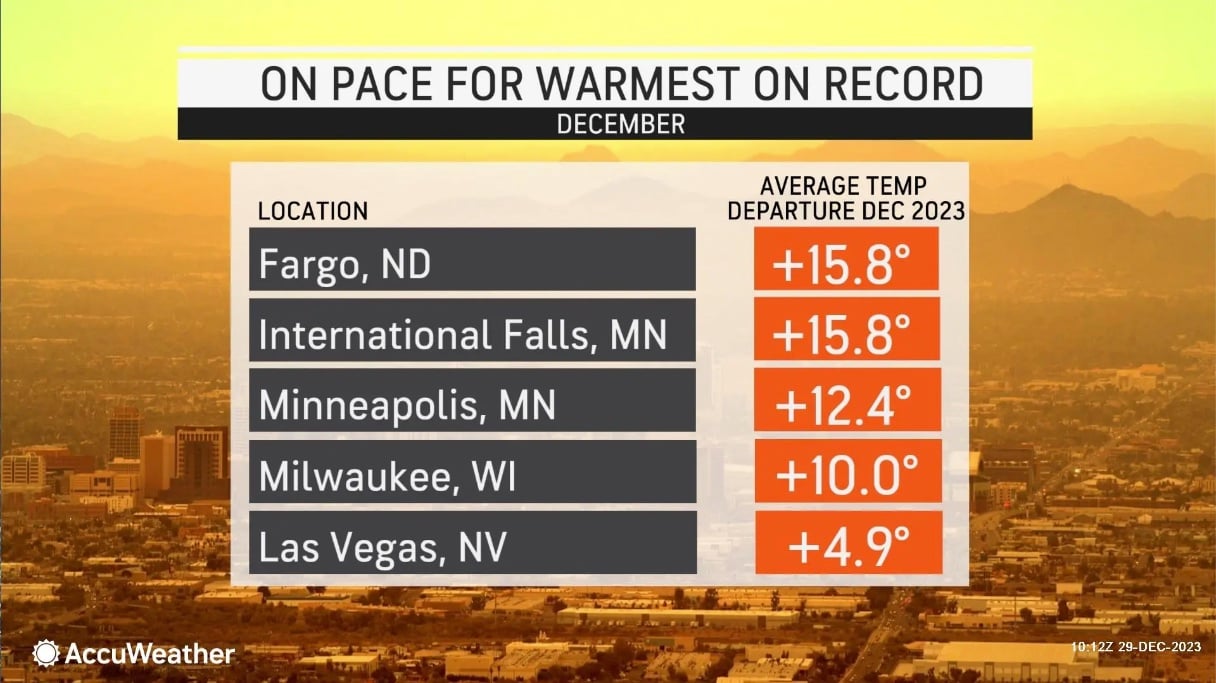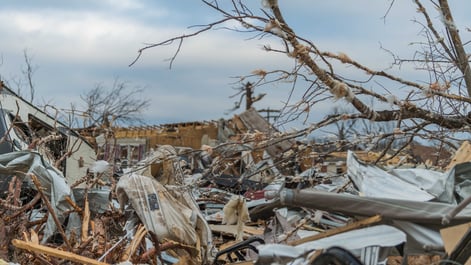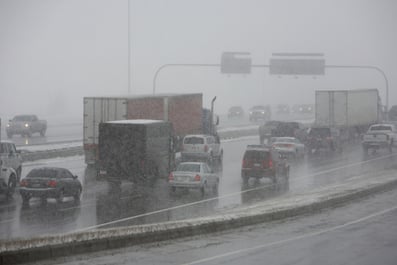December 2023 was the warmest on record for some parts of the U.S.

Summary
Some parts of the U.S. saw the warmest December on record in 2023, significantly impacting industries.
Key Highlights
Nearly every reporting site over the lower 48 states experienced temperatures above the historical average for the month.
The record warmth had a mixed impact on various industries, with some, like the construction industry, benefiting while others, like winter tourism, suffering.
The warmer winters, potentially driven by changes in climate, could have far-reaching economic impacts.
The year 2023 was one for the record books - several months were the warmest ever reported, and December was no different. According to AccuWeather meteorologists, the United States experienced one of the warmest Decembers ever, with several cities breaking their records. This unusual warmth has significantly impacted various industries, including agriculture, winter tourism, and energy.
The final statistics for December 2023 reveal an unusual trend across the United States. Nearly every reporting site over the lower 48 states experienced temperatures above the historical average for the month.
The lack of Arctic air in December has led areas like International Falls, Minnesota, to experience an average temperature of 28.1 degrees Fahrenheit as of Dec. 27, 15.6 degrees above the historical average for December.
This warmth was not confined to the North Central states. Cities farther south, east and west also experienced a warm December. Many metro areas along the Interstate 95 corridor of the East Coast and the I-5 corridor of the West Coast were 2 to 5 degrees above the historical average this December.

Impact on Various Industries
The unusual warmth has had a mixed impact on various industries. For some, the warmer weather has been beneficial - with businesses seeing an increase in productivity and profits, such as the construction industry.
Other Industries Benefiting from Warmer Winters:
-
-
Renewable Energy: Increased warmth may enhance the efficiency of solar and wind energy production, offering a boost to the renewable energy sector.
-
Outdoor Recreation: Warmer winters extend the outdoor activity season, benefiting industries like hiking, camping, and other recreational services.
-
Agriculture: Certain crops may benefit from milder winter conditions, potentially leading to extended growing seasons and increased yields.
-
Tourism in Warmer Climates: Destinations with typically warmer winter climates may experience a surge in tourism as people seek enjoyable weather.
-
Energy Consumption: Reduced demand for heating in buildings during warmer winters can result in lower energy consumption and costs for consumers.
-
While some industries are benefitting, others are experiencing significant financial losses. For example, snow removal services are seeing a decrease in demand, affecting their seasonal businesses and profits.
Other Industries Suffering from Warmer Winters:
-
-
Winter Sports and Tourism: Ski resorts and winter sports industries may face challenges with less consistent snowfall and shorter winter seasons.
-
Retail for Cold-Weather Gear: Businesses specializing in winter clothing and equipment may see reduced demand with milder winter conditions.
-
Insurance Industry: Warmer winters may contribute to an increase in weather-related risks, potentially impacting the insurance industry with more claims.
-
Traditional Winter Tourism: Regions relying on winter-related tourism, such as ice festivals or winter carnivals, may see a decline in visitors due to less favorable conditions.
Superior Accuracy™: Better informed, Better protected, Better prepared for any weather risk.
AccuWeather SkyGuard® Notifications, with proven Superior Accuracy, deliver site-specific alerts and warnings well before severe weather hits, giving you more time to prepare. Access to real-time flood alerts empowers businesses to take proactive measures, such as evacuations or implementing emergency response plans, to safeguard their employees, assets, and operations. Plus, get access to a team of expert severe weather meteorologists watching out for your business 24 hours a day, 365 days a year.
Want to learn more about how AccuWeather For Business can help your business better prepare for severe weather? Talk to an expert today to find out how SkyGuard can protect your business, employees, and assets.
-







